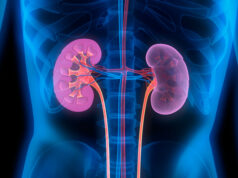Earlier this week, shares of Moderna skyrocketed following the company’s announcement of early data from the Phase I clinical trial the National Institute of Allergy and Infectious Diseases is conducting of mRNA-1273, its vaccine against the virus that causes Covid-19. But despite investors’ initial enthusiasm, physicians were cautiously optimistic, highlighting important caveats in the data.
Although the Cambridge, Massachusetts-based biotech company’s stock shot from $66.69 to $86.28 Monday morning and was still at $80 when the Nasdaq closed, it fell Tuesday and has since settled at around $72 per share as of midday Wednesday. That may be because the initial exuberance from the first-ever clinical data on a Covid-19 vaccine gave way to the reality that while encouraging, Moderna’s numbers were nevertheless early and inconclusive with respect to mRNA-1273’s actual efficacy.
The company announced initial data from the NIAID study showing that patients across three dosing cohorts – receiving mRNA-1273 at 25, 100 and 250 micrograms – seroconverted, and the first eight patients receiving two doses at 25 and 100 micrograms respectively developed levels of neutralizing antibodies that equaled and exceeded those of recovered Covid-19 patients. Additionally, the company released data from mice showing that levels of antibodies protective in them were similar to those shown in human subjects.
The vaccine is a messenger RNA (mRNA) vaccine, which introduces a messenger RNA sequence coded for a disease-specific antigen that, once produced by the body, is recognized by the immune system, which then is able to attack the virus. By comparison, traditional vaccines work by introducing a small or inactivated dose of a virus or other pathogen so the body can mount an immune response. The Phase I study is still enrolling toward its 105-participant recruitment target at the National Institutes of Health, Emory University and Kaiser Permanente, while Phase II and Phase III studies are planned as well.
But physicians commented that while the early data are encouraging, they don’t yet make it clear whether the vaccine is actually working. The doctors were contacted and responded via email and asked what they made of the data with respect to efficacy and what questions they still had.
“I think that it is too soon to make any conclusions with the Moderna vaccine with regards to efficacy,” wrote Dr. Paul Goepfert, professor of medicine at the University of Alabama and director of the Alabama Vaccine Research Clinic. He added that “if accurate, they provide optimism, but not much more.”
Goepfert pointed out that the specific antibodies and magnitude thereof was not clear, and it is not known how long those antibodies will last. And even if all the participants developed high concentrations of neutralizing antibodies, an efficacy trial is still needed, he added, noting that cytomegalovirus vaccines that induce neutralizing antibodies don’t work.
Dr. David Gordon, head of microbiology and infectious diseases at Flinders University in Adelaide, Australia, was also cautiously optimistic.
“I think this is encouraging preliminary data which shows that the antibody responses following vaccination are similar or greater than those occurring after natural infection,” Gordon wrote, pointing also to the inducement of neutralizing antibodies that are likely important for protection. On the other hand, he noted that the data for antibody responses as well as safety data – without any immediate safety signals – are in only a small number of patients. He also wrote that while the data in mice are encouraging, extrapolating them to humans is “a bigger jump” and that macaques would be better models.
Questions that remain to be sorted out, Gordon wrote, include T-cell immune responses that are likely important for longer-term protection; persistence of antibodies; exclusion of a vaccine enhancement of infection; and capacity for rollout. More testing is needed in larger numbers of human subjects for safety, older and sicker subjects and for efficacy in the field, he added.
A physician in the same southern Australian city who has taken part in vaccine trials, Royal Adelaide Hospital respiratory and sleep specialist Dr. Simone Barry, wrote, “The use of mRNA vaccines in infectious diseases is in its infancy, and there are a lot of unknowns.”
The first challenge, she wrote, would be to understand whether mRNA vaccines can mount an effective immune response required to overcome the virus. Other questions include potential unwanted side effects arising from severe or over-exaggerated inflammatory responses and whether such a vaccine would confirm long-term immunity and how specific it is to a particularly coronavirus.
“It’s very early days yet to pass comment on this particular vaccine, I would think,” she wrote.
Photo: Esben_H, Getty Images







